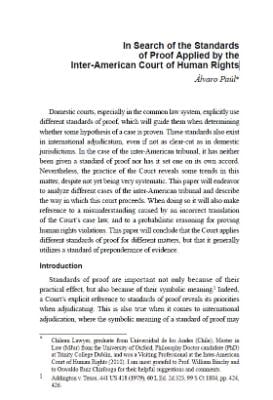
|
The Ethics of Abortion: Women's Rights, Human Life, and the question of justice
The overturning of Roe v Wade makes the ethical consideration of abortion more important than ever. Appealing to reason rather than religious belief, this book is the most comprehensive case against the choice of abortion yet published. This third edition of The Ethics of Abortion critically evaluates all the major grounds for denying basic rights to fetal human beings, including the views of those who defend not only abortion but also post-birth abortion. It also provides several (non-theological) justifications for the conclusion that all human beings, including those in utero, should be respected as persons. This book also critiques the view that abortion is not wrong even if the human fetus is a person. The Ethics of Abortion examines hard cases for those who are prolife, such as abortion in cases of rape or in order to save the woman's life, as well as hard cases for defenders of abortion, such as sex selection abortion and the rationale for being "personally opposed" but publicly supportive of abortion. It concludes with a discussion of whether artificial wombs might end the abortion debate. Answering the arguments of defenders of abortion, this book provides reasoned justification for the view that all intentional abortions are ethically wrong and that doctors and nurses who object to abortion should not be forced to act against their consciences.
|

|
Social equity and LGBTQ rights: Dismantling discrimination and expanding civil rights
Can a baker refuse to make a wedding cake for a gay couple? Despite the U.S. Supreme Court decision guaranteeing marriage equality in 2015, lesbian, gay, bisexual, transgender, and queer (LGBTQ) citizens in the United States continue to be discriminated against in fundamental areas that others take for granted as a legal right. Using social equity theory and intersectionality but written in an accessible style, this book demonstrates some of the ways in which LGBTQ citizens have been marginalized for their identity and argues that the field of public administration has a unique responsibility to prioritize social equity. Categories utilized by the U.S. Census Bureau (male or female, heterosexual or homosexual), for example, must shift to a continuum to accurately capture demographic characteristics and citizen behavior. Evidenced-based outcomes and disparities between cisgender and heterosexual and LGBTQ populations are carefully delineated to provide a legal rationale for a compelling governmental interest, and policy recommendations are provided including overdue federal legislation to prohibit discrimination based on sexual orientation and gender identity.
|
|

|
Avances en materia de normativa del cuidado en América Latina y el Caribe: Hacia una sociedad del cuidado con igualdad de género
El derecho al cuidado, entendido como el derecho a recibir cuidados, a cuidar y al autocuidado, forma parte de los derechos humanos ya reconocidos en los pactos y tratados internacionales de los que gozan todas las personas. El derecho al cuidado implica, además, el reconocimiento del valor del trabajo, la garantía de los derechos de las personas que brindan cuidados y la superación de los estereotipos en que se considera el cuidado una responsabilidad exclusiva de las mujeres. Más allá de la diversidad de situaciones económicas y culturales y de marcos institucionales, en todos los países de la región resulta fundamental diseñar sistemas integrales de cuidados que tengan como horizonte la universalización del acceso a los servicios y de su calidad, la coordinación e intersectorialidad de las políticas, la sostenibilidad financiera y la corresponsabilidad social y de género.
|
|
|
Plan de acción mundial para acabar con la Apatridia: 2014-2024
En un mundo conformado por Estados, el problema de la apatridia continúa siendo una flagrante anomalía con impactos devastadores en las vidas de al menos 10 millones de personas en todo el mundo que viven sin una nacionalidad. En octubre de 2013, el Alto Comisionado de la ONU para los Refugiados hizo un llamamiento para lograr el “compromiso total de la comunidad internacional para poner fin a la apatridia”. El Plan de Acción Mundial para Acabar con la Apatridia: 2014 – 2024 (Plan de Acción Mundial), desarrollado en consultas con los Estados, la sociedad civil y las organizaciones internacionales, establece un marco guía de 10 acciones a implementar para poner fin a la apatridia de aquí a 10 años.
|
|
|

|
Los derechos innominados: Caso sobre la interrupción voluntaria del embarazo en las sentencia C-055 de 2022
Uno de los temas de relevancia que se ha discutido en torno a la actividad desempeñada por la Corte Constitucional de Colombia, es el alcance de sus sentencias respecto a la interpretación del contenido normativo de la Constitución de 1991. Es así como se dio paso a algunas hipótesis relacionadas con la posibilidad de reformar e incluir nuevos derechos a la Constitución por órganos diferentes al poder constituyente primario y secundario; una de esas tesis correspondería al reconocimiento de los derechos innominados por parte de la Corte Constitucional. En este sentido, se procedió a estudiar la sentencia C-055 de 2022 con el fin de verificar si la interrupción voluntaria del embarazo encaja en la configuración de un derecho fundamental innominado, siendo consecuencia de la actividad hermenéutica y de identificación de nuevos derechos que surgen en la sociedad por parte del Tribunal Constitucional.
|
|
|

|
In search of the standards of proof applied by the Inter-American Court of Human Rights
Domestic courts, especially in the common law system, explicitly use different standards of proof, which will guide them when determining whether some hypothesis of a case is proven. These standards also exist in international adjudication, even if not as clear-cut as in domestic jurisdictions. In the case of the Inter-American tribunal, it has neither been given a standard of proof nor has it set one on its own accord. Nevertheless, the practice of the Court reveals some trends in this matter, despite not yet being very systematic. This paper will endeavor to analyze different cases of the Inter-American tribunal and describe the way in which this court proceeds. When doing so it will also make reference to a misunderstanding provoked by an incorrect translation of the Court’s case law, and to what could be called a deductive reasoning for proving human rights violations. This paper will conclude that the Court applies different standards of proof for different matters, but that it generally utilizes a standard of preponderance of evidence.
|
|
|
|
|